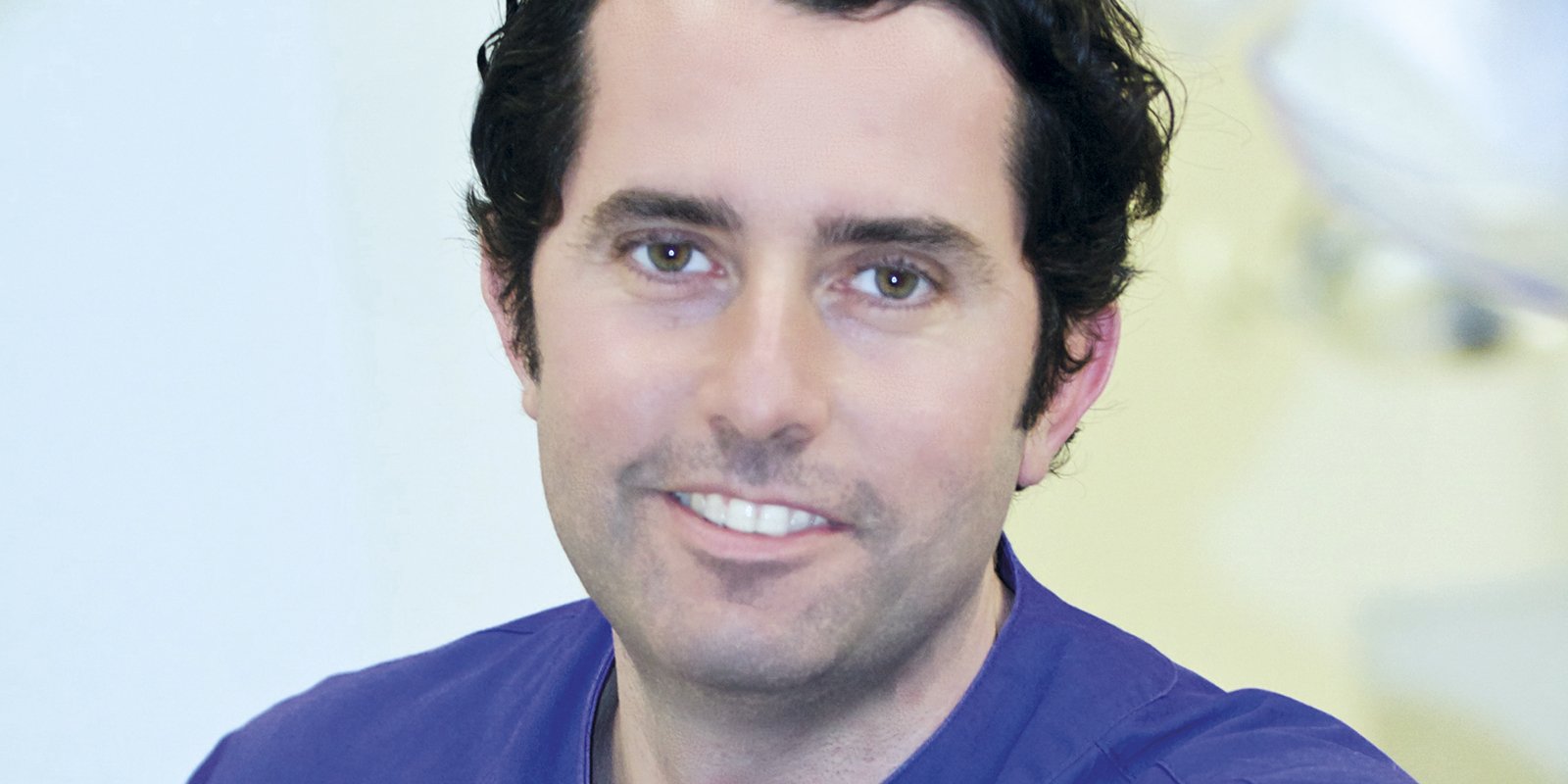DENTAID EXPERTISE
News for dentistry professionals
DR. FILIPPO GRAZIANI, ASSOCIATE PROFESSOR OF PERIODONTICS AT THE UNIVERSITY OF PISA (ITALY)
02 Jan 2018

“Periodontal treatment provides not only local benefits, but also positive psychosocial outcomes”
Dr. Filippo Graziani, who is an honorary professor at University College London and a member of the Executive Board of the European Federation of Periodontology (EFP) as well as an associate professor of Periodontics at the University of Pisa, recently gave a lecture at the Annual Meeting of SEPA in Malaga, where he spoke about periodontal patients, the acute systemic effects of periodontal treatment, the effects on general health and the effects of treatment on psychosocial well-being.
In recent years there have been many studies linking periodontal disease with multiple systemic pathologies. How is that possible?
Basically, the mechanism relies on two aspects of the disease: bacteria and inflammation. On the one hand, periodontal bacteria can enter the circulation and produce bacteraemia and, on the other, inflammatory by-products can spread to the organs and/or trigger other inflammatory reactions.
When bacteraemia occurs, some bacteria such as Porphyromonas gingivalis (P.g.) may colonise other tissues such as the endothelium. Thus, it is not uncommon to detect P.g. in carotid biopsies of atherosclerotic tissues. In addition, this bacterium has certain virulent functions that can trigger inflammation and possibly facilitate the rupture of the atheroma.
Inflammation is also critical. Periodontal patients show higher levels of inflammation than similar subjects without periodontitis. Inflammation is currently considered to be a well-known risk factor for some chronic pathologies such as cardiovascular diseases, diabetes or rheumatoid arthritis. Subjects with periodontitis thus have these potential mechanisms that link the disease to other pathologies.
This is confirmed by the epidemiological associations that clearly indicate that those who have periodontitis have a greater association with atherosclerosis and poorer glycaemic control, for example.
We know that in some cases, such as diabetes mellitus, this relationship may be bidirectional. Is that not the case with other systemic pathologies?
The bidirectional relationship with diabetes is unique. In fact, patients with diabetes have a greater tendency to develop periodontitis (and when they do, it seems to be more severe) and subjects with periodontitis are more likely to develop diabetes. The link between diabetes and periodontitis is clearer: diabetics have a greater tendency to develop an inflammatory hyperresponsiveness and bone destruction when there is involvement of periodontal pathogens. On the other hand, despite being based on very recent tests, it might seem that oral microbiota in subjects with diabetes shows greater virulence.
The opposite, i.e. a greater tendency for a subject with periodontitis to develop diabetes, is less evident. The mechanisms possibly depend on the systemic inflammatory level present in subjects with periodontitis. From an epidemiological point of view, it is very likely that if you have periodontitis you will show lesser glycaemic control in both healthy subjects and subjects with diabetes. On the other hand, if you have diabetes and periodontitis there will be a higher rate of complication. One area where it was not possible to extract evidence is gestational diabetes.
You have also carried out research on periodontal disease and psychosocial well-being. How can periodontal disease affect our quality of life?
Quality of life is severely affected by periodontitis. Approximately 90% of patients affected by periodontitis feel that their disease causes problems impacting their life in general. This effect is even more evident when there are symptoms such as gingival bleeding, halitosis and dental mobility.
The reasons for such implications are complex and multifaceted and are strongly influenced by subjectivity. In fact, quality of life may be altered by the general condition of the oral cavity, regardless of the sole contribution of a specific disease, and this is somewhat ethereal. The specific areas that contribute to this are symptomatology, function and psychology. As mentioned above, symptoms are critical. Here’s an example: if someone notices she has halitosis, she will not invite anyone to dinner. By not doing so, she is depriving herself of a social life, of human closeness. This could affect her quality of life. Function is also important: the fewer the teeth, the less effective chewing and the willingness to smile, eat and enjoy life will be.
Finally, we must bear in mind that cases of periodontitis are also related to a high level of stress through direct and indirect mechanisms. On the one hand, the accumulation of allostatic load or stress is related to unhealthy behaviours such as smoking, alcohol abuse, sleep deprivation and poor oral hygiene, thus increasing the susceptibility to periodontitis. On the other hand, stress also affects the autonomic nervous system with an increase in catecholamine and cortisol levels, which determines greater susceptibility to inflammation.
Taking the above into account, can periodontal treatment improve people’s quality of life?
Absolutely. We know periodontal treatment provides not only local benefits, but also positive psychosocial outcomes. Quality of life increases after periodontal treatment and this effect is notable not only to the professional, but also to the patient. Interestingly, the main effect can be obtained through non-surgical treatment. Surgical treatment per se does not determine an increase in quality of life. It is most likely due to the fact that symptoms are usually controlled after the first phase of treatment.
It is also important to note that this effect is not related to the type of instruments used. Basically, it does not matter which instrument the treatment is performed with; what is important is to control the disease by reducing inflammation.
How can a periodontal patient be motivated to maintain treatment results on the long term?
Motivation is one of the most difficult goals. In fact, people’s motivation depends on different mechanisms. I think the important thing is to emphasise that you cannot be a good periodontist if you do not appreciate people. There is no way our treatment can work if we fail to change some behaviours and lifestyles, and this is not possible if we can not connect with the person, the human being, in front of us.
Today, there is a trend to placing many implants. Which provides better quality of life: implants or natural teeth?
I do not think there is much difference if you consider their functional aspect. If you are missing teeth, dental implants are possibly the best option. If you still have teeth, it is best to strengthen them. Surely both periodontal treatment and implant treatment produce an improvement in oral-health related quality of life.
What else do we need to know about periodontal disease?
I think we need to work more on individual inflammatory susceptibility and the differentiating effects between people. This can also have a tremendous impact on treatment. In future I expect periodontal treatment to include more and more aspects and to allow us to treat patients comprehensively - 360° therapy.
We know there will soon be a change in the classification of periodontal diseases. Can you tell us something about that?
We hope to see you in Chicago to take part in this historic event. I think the new classification is necessary and that it will be much more “friendly” at the clinical level!
What is your feeling about the future of periodontics in Europe?
Very good, especially for 2019, when I become president of the EFP!
RELATED ARTICLES

13 Dec 2021
Daniele Puzzilli, the dentist of footballer Leonardo Spinazzola
With this pandemic, it has been seen that people pay more attention to their personal care. How important is dentistry in times of COVID-19? The…

09 Jun 2021
Prof. Mariano Sanz, EFP Eminence in Periodontology Award
What does winning the EFP Eminence in Periodontology Award mean to you? It means a lot, as I have been very active in the EFP since it was…

11 Feb 2020
Dr Alejandra Chaparro, Dentist specialising in periodontics and Chair of the IADR Chile
Dr Alejandra Chaparro, the current Chair of the Chilean division of the International Association for Dental Research (IADR), is a dentist who…
Sign up for the DENTAID Expertise newsletter
Sign up for the newsletter